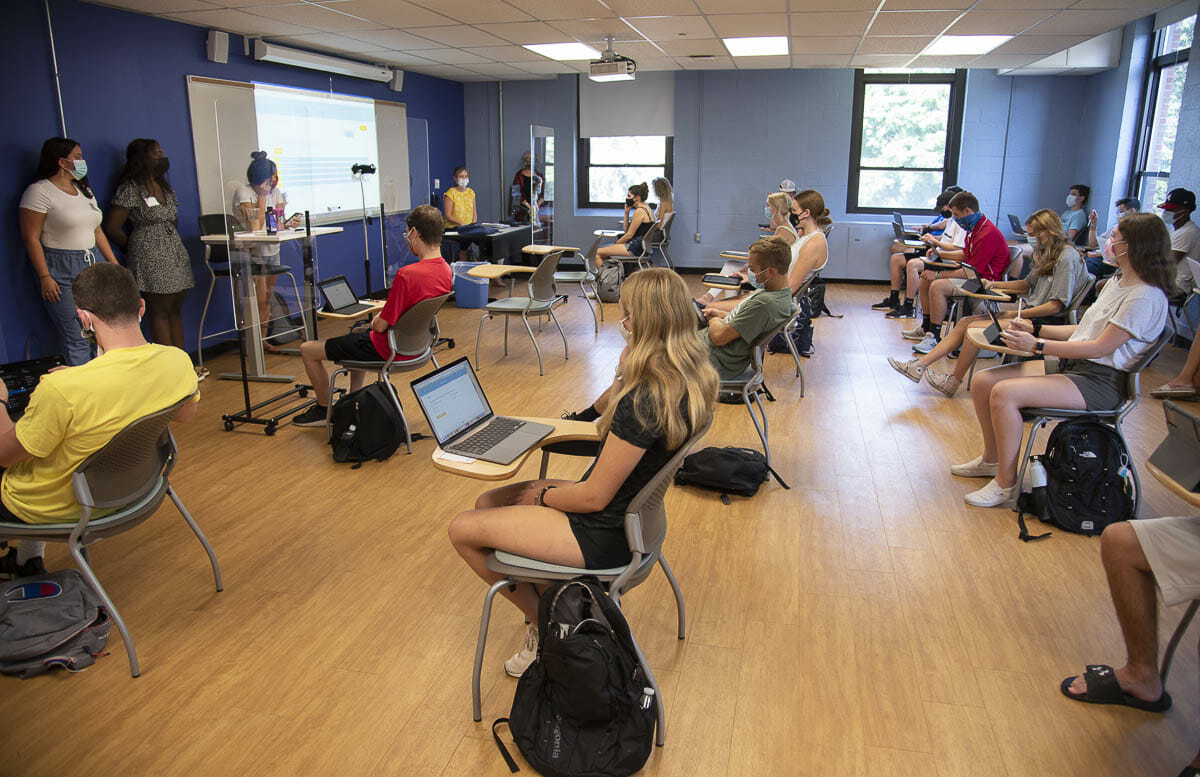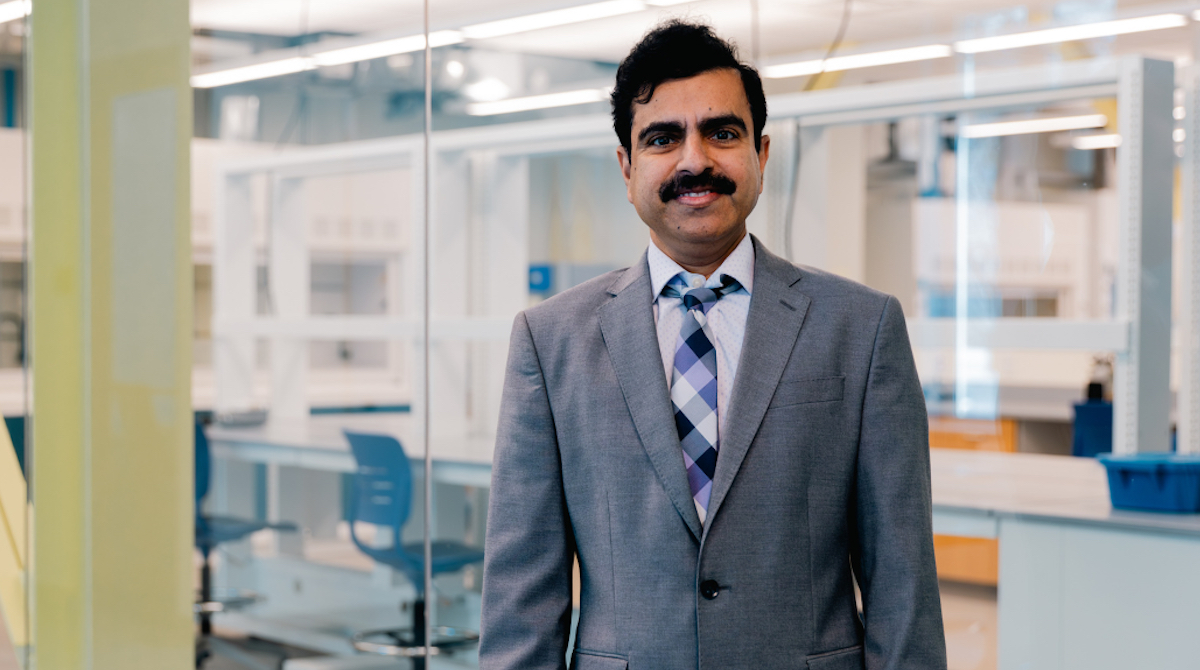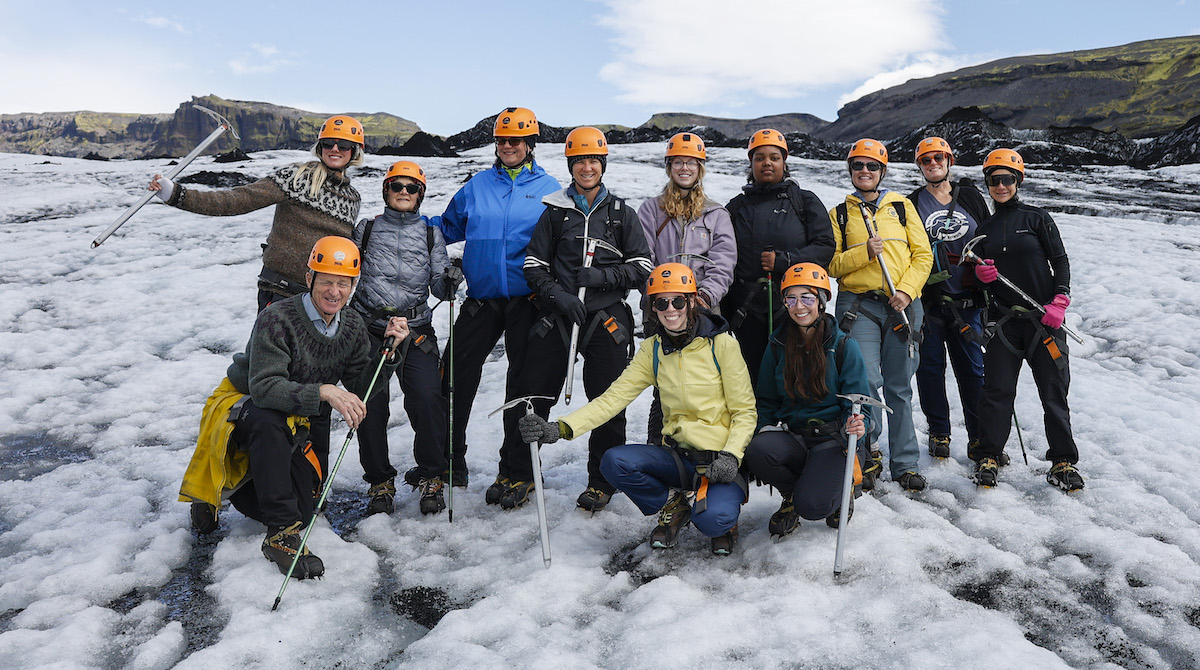When the COVID-19 global pandemic upended the world in early 2020, Merrimack College was no exception. To help students navigate their “new normal,” April Bowling, assistant professor in the department of public health and nutrition, and Simona Sharoni, former director of the Interdisciplinary Institute and professor of women’s and gender studies, blended their diverse interests to create a timely, relevant course that answers many of the questions facing today’s students. Sharoni, who was recently appointed to serve as special assistant to the president for diversity, equity, and inclusion, is especially interested in making visible the relationship between COVID-19 and systemic inequalities.
Global Pandemics: Challenges and Opportunities in the Context of COVID-19 (IDS1010) explores the global pandemic through the lens of multiple fields of study and practice, including science, public health, history, women’s and gender studies, education, philosophy and art. Offered this fall, the course will satisfy students’ STEM requirement for general education.
“The global pandemic has created enormous problems, but it’s also led to exciting innovations and exemplified human resilience,” Bowling said. “Our students and faculty are living, learning and working in the context of this reality, so this course is framed to capitalize on that shared experience.”
Beginning with a historical overview of pandemics, the course will examine the biology and epidemiology of the COVID-19 outbreak, and explore pandemic planning and response frameworks. Building on that foundation, the curriculum will shift to explore how pandemics make existing inequalities worse, the economics of pandemics and post-pandemic recoveries, and the impacts on healthcare systems in different countries. Finally, the course will tackle topics such as COVID-19’s effect on education across the lifespan, climate change, forced migration and conflict, arts and social media, and the meaning of global citizenship.
In addition to Bowling and Sharoni’s lectures, the course will include weekly roundtables, featuring faculty experts from Merrimack’s five schools. The lead instructors hope that students’ exposure to multiple disciplines and faculty across campus will help them find their intellectual passion and academic focus. These virtual roundtables will be open to the public.
“One of the goals of the Interdisciplinary Institute is to stretch students’ understanding across and beyond traditional academic disciplines through engaging curriculum,” Sharoni said. “For several years, Merrimack faculty have participated in retreats and conversations about team-teaching and interdisciplinary pedagogies. The Global Pandemics course, which we are very excited to co-teach with the support of our colleagues, is the culmination of these efforts.”





